Last Updated on July 27, 2021

John
Kramer aka Jigsaw has recently become the most recognizable horror
icon, almost in league with Freddy, Michael and Jason.
But his brand of horror is nothing like the others; Jigsaw is
judge and jury while he leaves his victims as their own executioner.
The idea works, but much of the credit should go to the
fascinatingly, brilliant portrait created by Tobin Bell.
He successfully plays the weakness, the fear and the
confusion of an old dying man, albeit one who has a monstrous side
to him. His booby traps that
leaves drug addicts, losers and other unfortunates with death or a
heavy price to pay. And this
coming October 26th, we will find out how Jigsaw returns to SAW
IV.
Recently,
at the Parc Restaurant in
Hollywood
, we got the chance to have a sit down with Darren
Lynn Bousman and of course, Jigsaw himself, Tobin Bell.
He is nothing like you’d expect.
He is a kind hearted and very fascinating gentleman.
His career is varied, with many roles in television and his
recent success as a horror icon. But
he is also a little league baseball coach who welcomes the fans to
talk about the SAW films. He
attends conventions and enjoys talking to journalists all over the
globe. And these words I share
with you, so sit down and relax, and enjoy a few words from SAW.
Tobin
Bell

We’re happy
to know you’re in Saw IV, but how did that happen?
All I can tell
you is that you’ll find out in the very first scene in the film.
It’s the absolute first scene in the film that you find out why I’m
still in it and how I’m still in it. I’m happy to be still in it and
happy to be involved in the Saw story. I like the way it evolves. It
has a wonderful way of developing in this bizarre sort of strange,
last minute way; because very often the script that we end up with
on set is not the script that we end up shooting on many, many
levels. I particularly like working with Darren [Lynn Bousman]
because he’s flexible and he does what I think all good leaders
should do, which is to avail themselves of the resources of those
who work for them. If you do, it makes your job a lot easier. That’s
the reason why you hired them in the first place. Darren does that.
He’s real smart.
Is this going
to be a Bobby Ewing moment or something a little more sophisticated?
I don’t know
about the Ewing moment.
In the
shower, it was all a dream [It’s how the TV Show “Dallas”
dealt with a particularly bad season].
Oh, no. Is that
how they did that? It was a dream? That would be a way to do it.
Somebody down there said, “Well, does Jigsaw have a
brother?” No. “Or an uncle or a son? How are you still in
it? Is it a twin?” I said no.
Will we see a
different sort of Jigsaw?
That question,
in my perspective, that guy was a guy in a bed in Saw III who’s
dealing with Amanda in front of him, the same way as a guy in a bed
in my house or your house would be dealing with Amanda, with a girl.
I don’t view him as some sort of strange, diabolical, insane person.
That’s not his view of himself, so why should I approach him that
way? The script will inexorably lead me to perform the deeds that
are performed, but I don’t need to play that. What I need to play is
something that informs that on some level. I think that creates
different rhythms. I think it creates different space, spatial
relations in terms of the story. It gives you a place to rest from
the mayhem and the murder that’s going on out here. What was the
question? [Laughing]
Is it a
different Jigsaw?
No. It’s the
same Jigsaw. Are you ever going to see Jigsaw have a love scene?
Well, I felt like I had a couple with Amanda in the last film. They
didn’t write any Amanda/Jigsaw relationship in that movie. So
whatever we came up with, we had to come up with in a touch, in a
look, in a feeling, in a moment which is blessed stuff when you’re
an actor. If you can create any sense of reality, any connection
with your partner, it makes it all worthwhile. It feels very right.
When that gets captured by the camera and makes it through the shark
infested waters of editing onto the screen, then that’s great.
Is there room
for improvisation in 4?
Well, hopefully
by the time the camera rolls, you know what you’re going to do or
what you want to do. You’re always improvising but you’re
improvising within a very small window. Otherwise, one, the camera
guy is – they encourage you in acting school, the thing they
encourage you to do is to follow your impulses. That’s what you’re
supposed to do. That’s what you’re learning to do. If you follow
your impulses on a movie set, they would never get all of your
impulses.
You would never
get the scene. You follow your impulses but you follow them within a
very small window; because basically you’re there to service the
technicians. It’s surprising how little in film and television is
about acting. It’s largely technical. A lot of it is very
technical… these massive requirements that have to do with lights
and camera and sound. They hope that you’re going to do something in
this little zone right here, but meanwhile we’re all there to
service the trades that surrounds us.
Who do you
verbally spar with in 4?
There’s a guy in
this film that we’ve never met before, who is – I can only describe
him as being one of the disenfranchised of the world. Jigsaw comes
into contact with this guy and they’re like total opposites in a
certain way. But when I think about it now, I view Jigsaw as someone
who is basically living on a frontier in some way. Imagine those
guys on the moon. Many people talk a good game about the things that
they care about in this world, but they do nothing about it. He,
right or wrong, steps forward, does what he does. So this guy he
runs into in this film, or their paths cross, this guy is one of the
lost of the world. And as I think about it now, although Jigsaw is
extremely well educated, he’s a philosopher, a mechanical engineer,
he had everything to live for in his previous career, this other guy
had never had anything. There’s an interesting dialogue between the
two of them. Anyway, you get to meet this guy in this film. I think
it’s a very interesting juxtaposition between the two of them.
Saw 3 is
tragic because Jigsaw fails his mission. Is there a chance at
redemption in 4?
He’s not able to
save anyone. That’s not what he does. People have to save
themselves. He’s not able to do that and he’s expressed that very
clearly. If you are bent on a particular course then no matter what,
he cannot – she says it very clearly. She says, “Fix me. Fix
me, motherf*cker, if you’re so great.”
If someone’s
indecisive about seeing Saw 4, what would you tell them to get them
to see it even if they’ve never seen a Saw film?
Tremendous
ending.
Better than
this [pulling off the head]?
[duplicates
gesture] This?
At the end of
Saw 1.
Oh, you know,
when you did that, I did that in Mississippi Burning. The FBI
dresses up as the Klan and I’m running across this field, and Alan
Parker brought me back to Mississippi from New York because he
didn’t have a shot that he needed. In the middle of the night, we
ran across this field, I pulled off this Klan mask, so when you did
that, and we did it over and over and over. So that’s what came to
my mind. But now that you’ve described that, yeah.
The ending of
Saw 1 still blows people away, especially when they see it for the
first time.
It blows me away
and when I read the script, I thought it was… I didn’t anticipate
that moment at all, when I read it on the page. I was totally caught
by surprise. I thought if they shoot this well, it’ll be a splendid
moment. This is worth doing, just for this moment. But what sold the
moment was Leigh Whannell’s reaction to that moment. His reaction is
just fabulous, the expression on his face kind of mirrors what I
think most of the viewers were feeling. We did that in one take, by
the way. That’s what happens when you’re making a film for a million
dollars. You don’t waste a lot of time. But we worked hard because
there would have been a long setup, reset, to re-fix this
prosthetic. We did not want to go through that again so we wanted to
get it in one take.
Do you think
this ending compares?
Yes. One of the
things these guys have done really well has been to not only have
all the traps and all the tricks and all the gore and all the murder
and mayhem, but they’ve tried to infuse the films with a delicacy
and intelligence that I think offsets that. It’s like listening to
music
or a symphony or whatever. You start out with a very powerful
section and then it slips into a very soft and easy section that is
easy to absorb and you can kind of relax into. Then you go into
another section that grabs you again. So I think that’s part of the
success of Saw.
How have the
new screenwriters captured Jigsaw?
Surprisingly
well. One of the things that Leigh… They captured his voice, they
write good dialogue. I miss Leigh’s concepts. Leigh, a lot of the
concepts, for example the material in Saw II about survival of the
fittest, which I think is a very important aspect of Jigsaw’s
character. I think he feels this world, we have 100,000 years of
survival of the fittest, and that’s all gone to hell. It’s now
survival of the mediocre. All you have to do is be able to lie and
cheat and be hypocritical and do it well, and you’re going to get
by.
That’s one of
the things that annoys him and drives him; people who climb over the
bodies of others to advance themselves. That’s one of Leigh
Whannell’s concepts. When I was doing Saw II, I came up with 130
things that disturb this guy, that disturb him. And there’s a whole
laundry list of complaints about the world like we all have, but he
behaves on them differently. If you knew the exact moment of your
own death, how would you live your life differently? That was
Leigh’s. And young kids, 12-year-olds, talk to me about that.
What do the
kids talk to you about?
The kids talk
about the concepts to me more than they talk to me about the traps.
Groups of skateboarders, they say these films teach you stuff. I
say, like what? First they say, “When’s the next one coming
out?” I tell them when and they say, “Oh, we love ’em. We
just love ’em.” Why? “Because they’re crazy and they’re so
real.” That’s what they say. “They’re crazy, man, and
they’re so real. And they teach you stuff.” And then they start
to talk about the various little concepts… appreciating your
blessings and stuff like that.
So I consider
that a good thing, that somehow…Isn’t it interesting, when you
think about music, a good song, it has multiple themes in it. The
fact that that theme, that those messages are getting through with
all of that intensity that’s surrounding them, that’s a really
interesting, I think, thing that has to do with rhythm and silence
because those themes come across usually in the more silent moments,
not in the louder, more obvious frightening moments…
Is there such
a concept in Saw 4?
Well, I think
there are several of those in Saw 4. It’s in the scene where he
talks to this guy who’s disenfranchised, totally disenfranchised.
It’s interesting to have two people that come from totally different
worlds and totally different training having this conversation, this
dialogue. To be honest, I’m doing most of the talking in this
conversation. He’s very much part of the scene. He’s the guy.
Is there ever
a point where it’s too real and you have to pull back?
Well, yeah. I
have a multiplicity of thoughts about that. First of all, it is the
responsibility of every parent to make a decision about whether
their young people should be seeing this film. Second of all, I
don’t believe that artists… if it exists in life, then as far as
I’m concerned it’s fair game to be put up on the canvas. I think
people have a perfect right, including NOT to watch it, not to see
it, not to have anything to do with it. Or, there’s no accounting
for taste. There just isn’t. I went to a convention in Philadelphia
called Monster Mania.
It was 7,000
people around this hotel who drove from Cleveland, from Florida, to
come to this and I spent two days talking to these people and they
were all Saw fans and horror fans. Not that it wouldn’t be… but I
was really impressed with the quality of these people and their
families. It was a tremendous experience to see how it’s like a
hobby for some people. Horror is a passion for some people. So to
participate in someone’s passion is a good thing. I learned a lot
from hearing people and listening to people. And then every year
when I go back to do it again, I do the same thing which is try to
inform what I’m doing with some sense of humanity because I’m not a
special effects guy. I don’t have anything to do with how that stuff
is created. But I am an actor and I can bring something that isn’t
necessarily on the page and that’s my job.
Many of these
characters have become familiar icons and by the third film as
villains they’ve become almost lovable. How do you keep it real?
I try to keep
the dialogue, I try to make the moments as real as I can make them.
I don’t cut the film together. We worked hard on the script and on
the material to make it both fresh and surprising. When we started
to work on this particular film, I remember saying to someone,
“Look, man, the eyes of the world are on this material. For
whatever reason. We have an obligation.” I was in
London
last year, just before Saw 3 opened, talking. People came from
Ireland and Wales and Scotland to talk about Saw with me.
I sat and talked
to them for three days. They just kept coming. They were
fascinating, they were great people and journalists and TV and press
and .com and all of them had questions. I could still be there
talking because of the interest level. So I’m keenly aware that the
eyes of more than just even the U.S. is on this material. So we work
really hard, thank God for Darren, because unlike some directors,
who have a view of something when they go in and it’s hard for them
to let go of that view of what it’s going to be.
And not to say
that a lot of Darren’s pre-view doesn’t get realized. It does. And
if something doesn’t work that we want to do, he knows it and he
will keep us on the straight and narrow. But that having been said,
he’s really terrific in that way, in his ability to be flexible and
f*ck it up. He’ll just suck up what comes and go, “Good,
done.” And he knows. So I’m always grateful for that because
we’ve all worked for people who are little more brittle than that
and who don’t work well using the strengths of those around them.
Are they
discussing more Saws?
Are there going
to be more? I said the same thing before Saw 3 when there was talk
about a Saw 4. I said to those people in London, “Let’s see how
you guys feel about 3” because it doesn’t feel good to me to do
anything less than the highest quality. So you have to keep fighting
for that. If Saw 4 is well received, do I expect there’ll be a 5?
Yeah. I expect there would be. It’s like Harry Potter in some ways.
If there’s story to be told and something has an audience, well,
what is theater about except to provide story and satisfy an
audience. So I see no reason why there wouldn’t be, although I have
no – there’s nothing sure in this town. The stock market could crash
tomorrow and we’re all out of work.
You refer to
him as Jigsaw, never as John Kramer? Is that a distinction you make?
You know, it
comes into my mind. That very thing comes into my mind a lot. I
guess I’ve played Jigsaw, the evolution of John Kramer, more than
I’ve played John. Although you will see some of John in this film
and so will I. His name is Jonathan, by the way. Although they say
John, his name is Jonathan.
Did you come
up with that?
I just know it
is. I think I dreamed it one night or something. It just came to me.
But isn’t
that part of your repertory training? When you approach a character,
you create a backstory for him that may not be in the script?
Oh, no question
about it. You go crazy playing characters. You can get away with it
once or twice but you have to do that. I have to do that. I have to
ask myself who am I, where am I, what do I want, when do I want it
and how am I going to get it? I have to know that and sometimes,
just one of those questions will- – I can do 50 pages just on one of
those questions. Who am I? Or what do I want? I mean, you know what
you want. If I asked you what you want, you might stammer and
stutter but when you got home and you took out a piece of paper and
said, “What do I want?” “Oh, I want to live a certain
standard of life. Okay.” And see what happens with this is I put
“I want to live a certain standard of life.”
You answer the
question. That opens up four more questions. What do you mean by a
certain standard of life? What would that look like? And you say a
car. What kind of car? And that’s the same way as you know all the
details of your day today — where you woke up, where you went, what
you did — and as an actor it helps to know all of those things,
whether they’re in the script or not, because they will show. It
will show that you know that. The camera doesn’t lie. It sees
everything.
You’ve done
all the Saw films back to back. Have you had a chance to see what
doors this popularity opens in the acting world?
No, I haven’t
really been doing them back to back. They’re about a year apart. I
did three other films and a television show in that gap. And when
I’m not working, I do a lot of coaching. I coach flag football and
little league baseball. I love sports.
Do you take
your little league team to the premiere?
No. No, but some
of them come up to me, not the kids that my son plays with. They’re
11 but the 12 or 13-year-olds, some of them will come up to me and
say, “Oh, I saw your movie last night.” I say, “Oh,
you did, huh? Your parents let you see that?” They say,
“Yeah.” “Were you scared?” “Nahhh.” So
it’s fun. Actors are just people doing their thing.
Now that
you’re this horror icon, have you scared people in real life?
It doesn’t
happen very often. When it does happen, it’s usually a violent
recoil. It’s usually that kind of thing. It’s only happened to me
about twice. One of them, it happened in Toronto at a bar late at
night. I left the hotel and put on my hoodie which was a big
mistake. I ran down to a little restaurant to get an arugala salad
to bring back to the hotel room. The bar was empty. The bartendress
was just kind of closing, wiping down the thing. I went to the end,
she came down and said, “Can I help…?” and that’s as far
as she got. And she said, “Oh my God, oh no, oh no. I’m not
going to be able to sleep tonight. Oh Jesus!” And she was
backing away down the bar. So yeah, it’s that kind of thing. When it
happens, that’s how it happens. “No, no, no, it’s just a
movie. It’s just a movie. Look, here, look, here.” We became
friends and I see her all the time when I’m in Toronto and she
introduced me to all her pals.
And the
second time?
The second time
was in New York in the subway. It was an instantaneous, similar kind
of thing. I’m usually the one who is intimidated in the subways but
it’s kind of an interesting position. When you play the guy like
this and he’s as well known, you still want to ride the subway.
You still want to do stuff like that. Generally, and I still do. I
do find myself wearing hats and sunglasses and stuff like that so I
don’t have to either one, freak people out or two, freak myself out
because people- – it changes the way that you can move around
through the world because of the popularity of the guy. But it’s
nothing compared to- – and people are always so nice, so interested,
so enthusiastic that it’s great stuff.
So you get
recognized a lot?
Oh
yeah, people see me all the time. People stop me. I can cover up all
I want but if they’re Saw fans, it doesn’t matter. My biggest fans
are in the security lines at airports. Those people are nuts about
Saw. They’re like, “Oh my God.” You know the thing you
walk through? There’s a guy on the other side. You’re supposed to
have your boarding pass. Every time I come through that door, the
guy on the other side is like, “Oh my God, it’s him. It’s
him.” And here comes this whole… So he’s more intimidated
by me than I am about him. So anyway, I think if Darren cuts Saw 4
together right, I’m going to be talking to people in London and
Scotland again.
Thank you very much.
Thank you.
Let me know what you think. Send
questions and comments to [email protected].


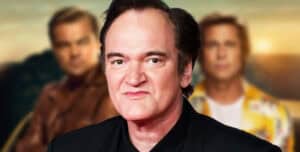
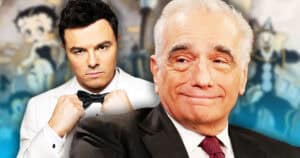


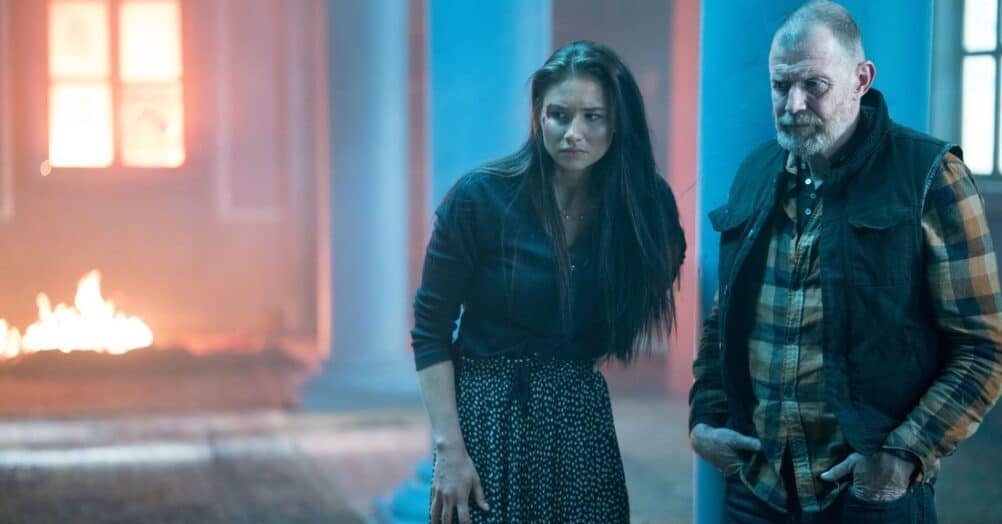
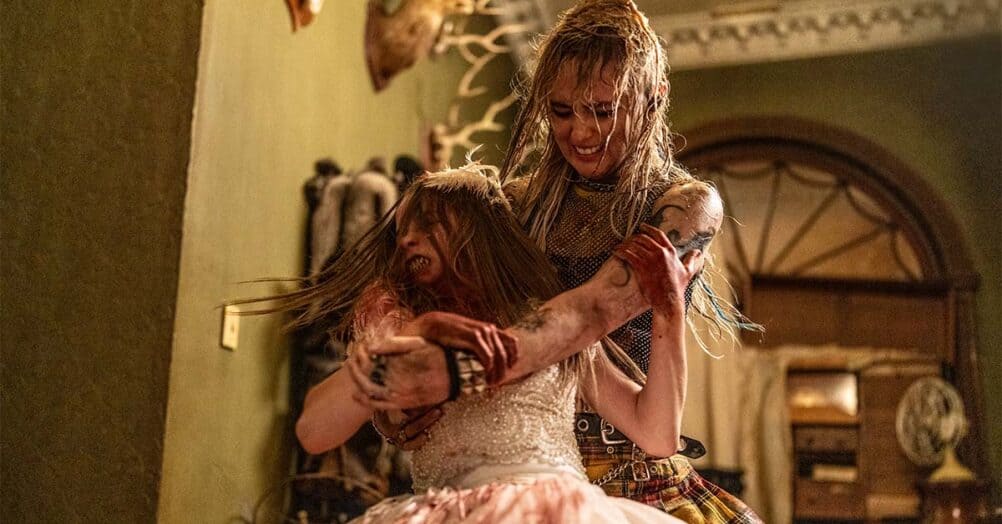
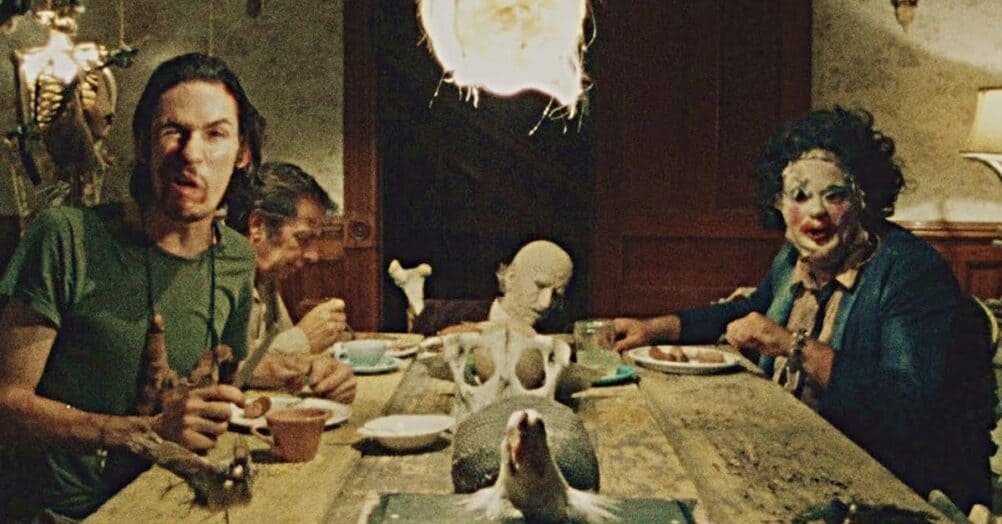
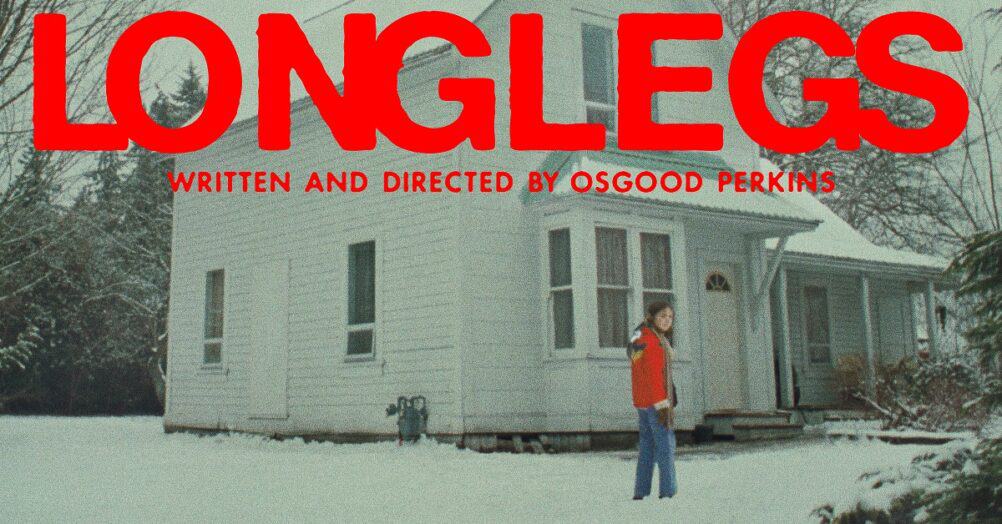
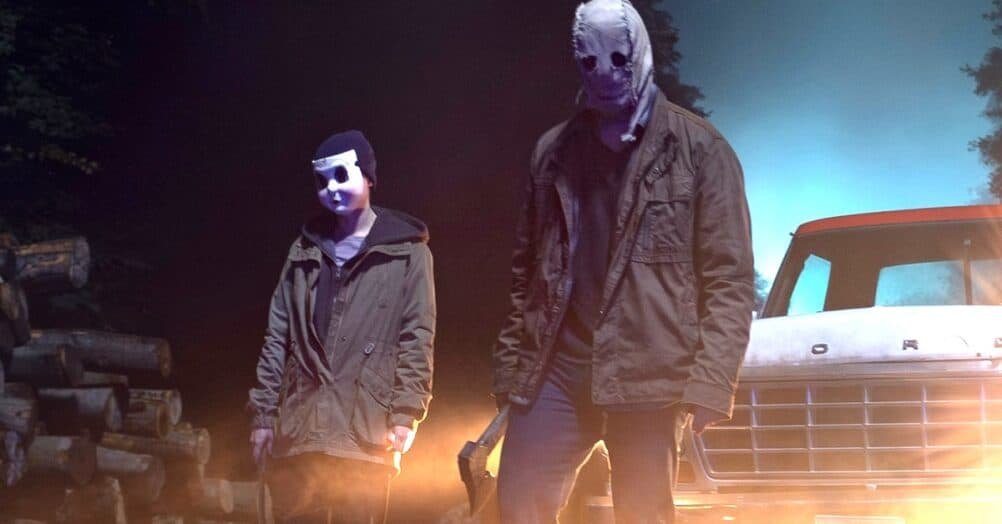
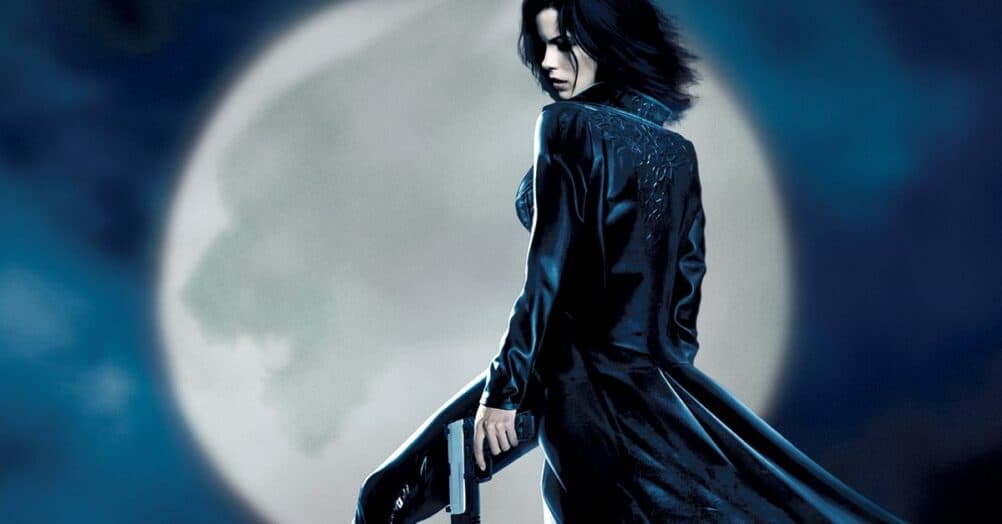
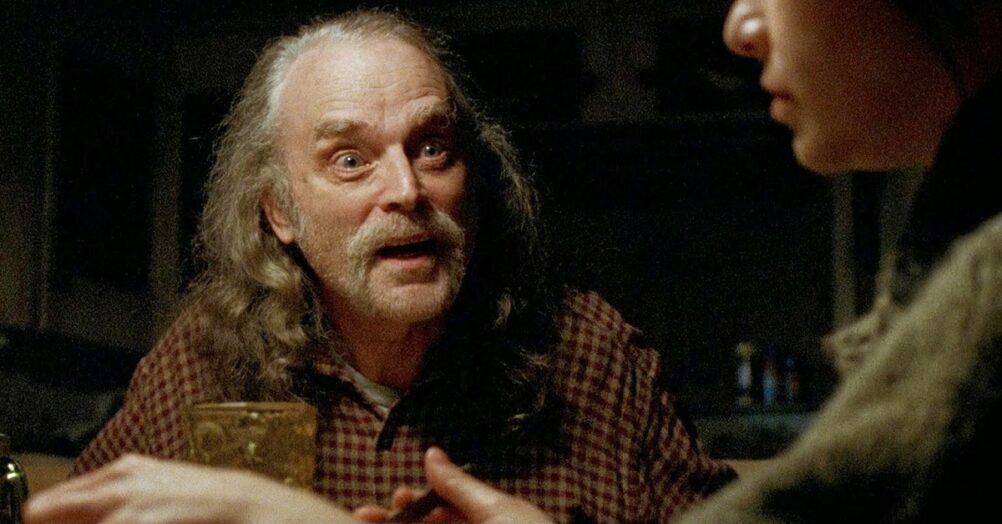
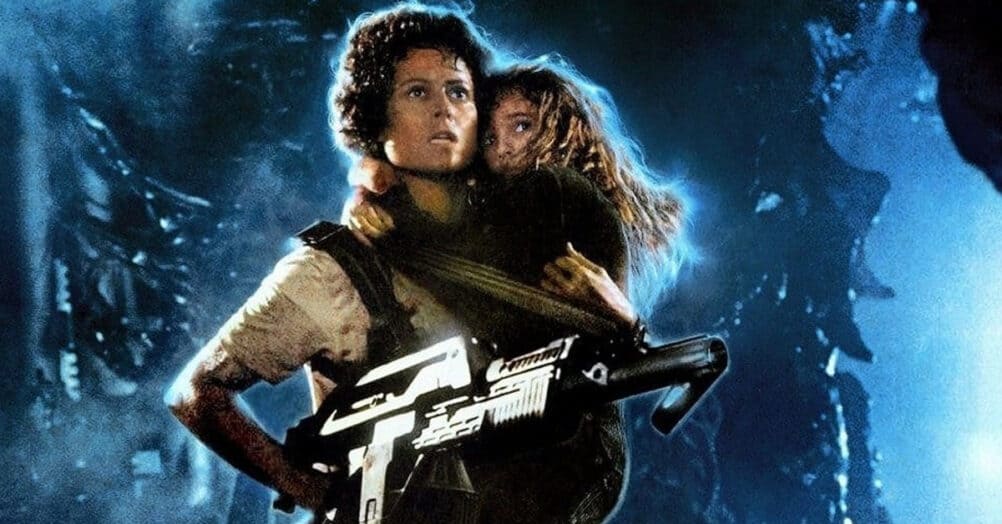
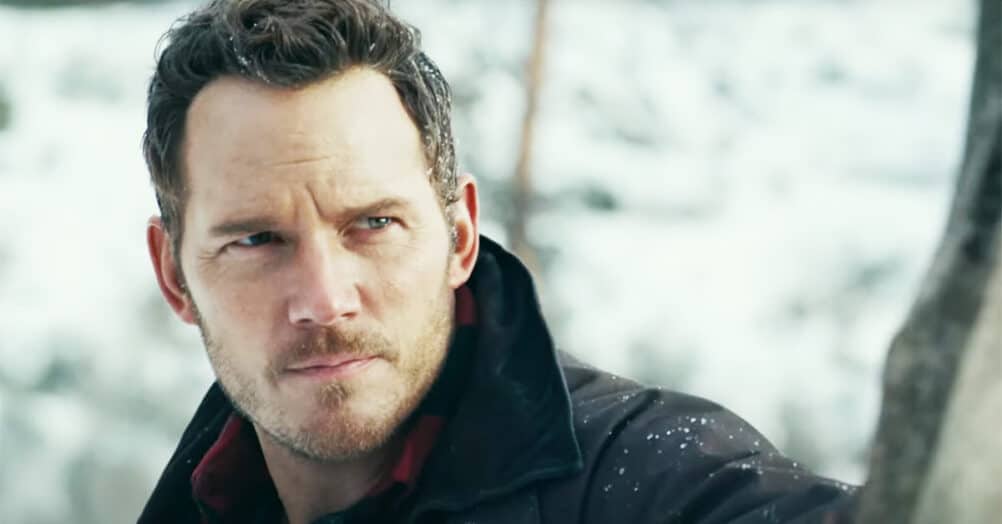
Follow the JOBLO MOVIE NETWORK
Follow us on YOUTUBE
Follow ARROW IN THE HEAD
Follow AITH on YOUTUBE